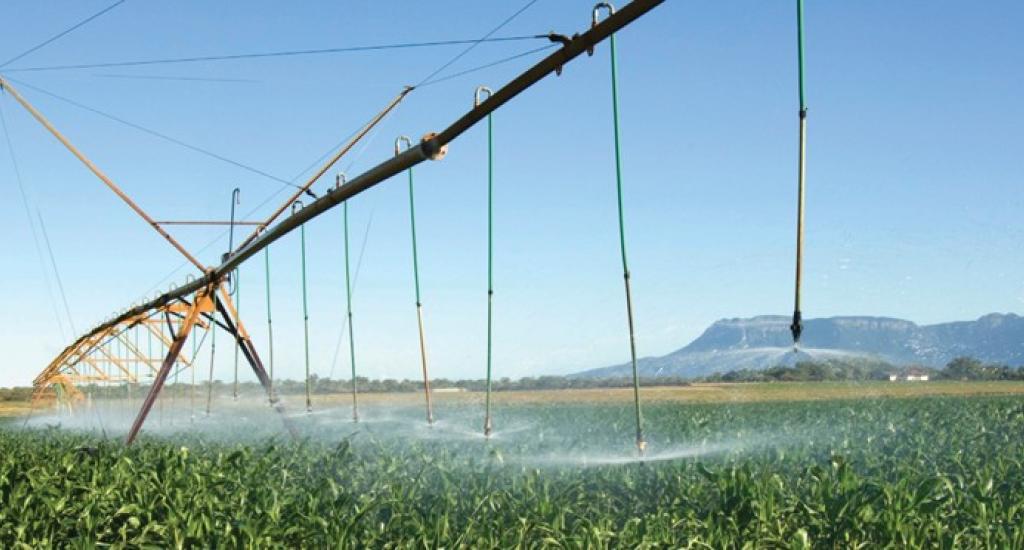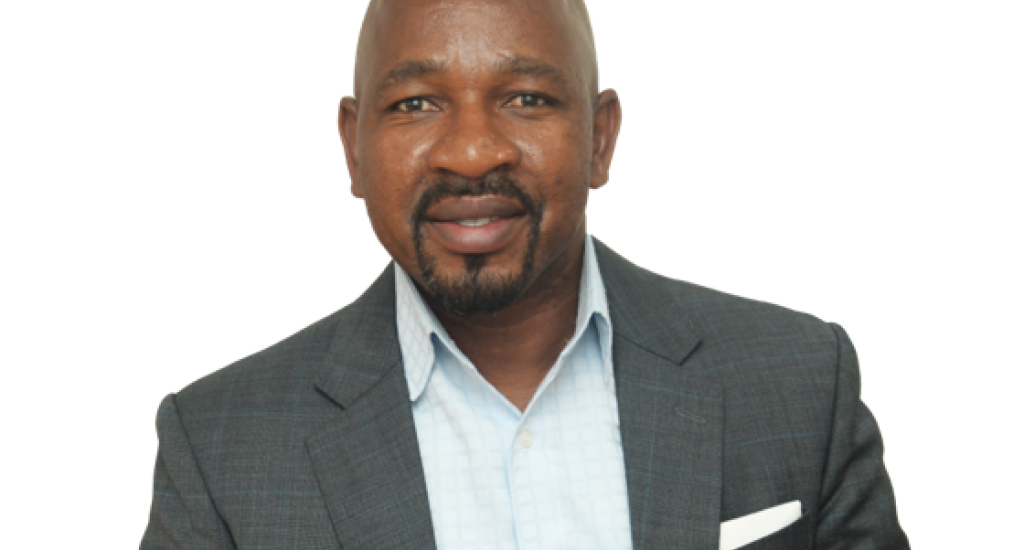Land Bank turns attention to uplifting farmers after stabilising

Despite recently successfully extricating the Land Bank from a financial quagmire, there is no resting on his laurels for Land and Agricultural Development Bank of South Africa (Land Bank) Chief Executive Officer (CEO) Themba Rikhotso. His leadership embodies a dedication not only to restoring financial stability but also to fostering a more inclusive and vibrant agricultural sector in South Africa.
The institution’s liquidity position was the proverbial hot potato when he took over the reins almost two years ago. The bank remained in a debt default position until September 2024, after concluding a debt restructuring solution with its lenders. It was a resolution that required cunning dexterity.
Rikhotso’s vision for the Land Bank is clear.
"I want to leave a strong Land Bank that has visibly supported the agricultural sector," he tells the Public Sector Manager magazine (PSM) during a recent interview.
Transformation
One of his key goals is to address the dualism in South Africa’s agricultural sector, where a small number of large commercial farmers dominate while many black farmers struggle.
Rikhotso stresses the need to transform the sector to increase the participation and success of black commercial farmers, ensuring they represent the demographics of South Africa.
"The status quo cannot be accepted; we must transform the sector," said Rikhotso.
With a strong foundation, strategic partnerships, and a focus on sustainability, Rikhotso envisions a Land Bank that leads the development of South Africa’s agricultural sector.
"We want to be a true leader in this space," he said.
The Land Bank, an institution central to South Africa’s agricultural financing, has faced numerous challenges in recent years – from technical defaults to the loss of key talent.
The CEO emphasises the resilience of the bank despite its financial setbacks.
"Since the bank has been in default, we have managed to make a profit year after year," he noted, highlighting the technical nature of the default. The challenges stemmed from the bank’s inability to pay off certain loans, particularly those where lenders accelerated payments, triggering what is known as cross-default clauses. This meant that all the bank’s loans became immediately payable.
"However, because of the strength of the bank and its balance sheet, we have been able to make profits year after year," Rikhotso asserts.
When the bank went into default, it lost a significant amount of talent, creating a challenge in its ability to execute its mandate.
The CEO added that rebuilding the bank's capacity to execute had been challenging, but they had made significant progress and reached important milestones. He acknowledged that while they had begun to implement their plans, the execution rate remained below expectations.
“Rebuilding confidence also remained a challenge, as was the quality of the bank’s loan book,” he said.
“But with the work that we did last year, we are starting to build on our confidence. We are starting to see some of the good farmers coming back."
He, however, noted that there was still a high percentage of non-performing loans and that addressing these, particularly for clients who continue to struggle, was one of the bank's biggest challenges.
At its prime, the Land Bank contributed R45 billion to the country’s agricultural debt finance, which represented a share of approximately 28% of the South African farming debt.
Since the default, the bank has repaid over 60% of its debt. This was achieved through cash proceeds from a deliberate reduction of the bank’s loan book – from R45.2 billion in March 2020 to R17 billion in June 2024.
Between April 2023 and April 2024, the Bank disbursed R980 million in grants and loans to farming operations.
Opportunities in agriculture
With all the recent progress, Rikhotso is adamant that opportunities continue to exist within the country’s agricultural sector, adding that a substantial portion of arable land included in the land reform programme remains unused.
“There is a huge amount of opportunity for us to work with the Department of Agriculture and put up programmes that will put some effectiveness in the use of that land” the CEO said.
He added that there are substantial opportunities in collaborating with small-scale farmers, particularly in providing them with market access and developing grower programmes to connect them with major agricultural product off-takers. He noted that the greatest opportunity for the Land Bank lies in becoming the orchestrator of the agricultural ecosystem, supporting farmers in this process.
While they are already working towards this goal, the CEO acknowledged that it will require strategic partnerships.
Focusing on some aspects of common interest, he pointed to The Agriculture and Agro-Processing Master Plan, which he said was a “100% alignment” with the Land and Agricultural Development Bank Act, 2002 (Act 15 of 2002).
“We intentionally check our alignment with it on a regular basis. We also worked very closely with the then-Department of Agriculture, Land Reform and Rural Development to ensure that we have joint programmes that we work together on, to the extent that we could actually reach a 10-year agreement for them to support us with [a] grant."
Targeted support
One of the bank’s notable achievements is its success with the blended finance programme, aimed at supporting emerging black farmers.
"Last year, we approved R1.5 billion worth of blended finance applications and disbursed more than 90% of that to farmers," Rikhotso explained.
The programme has supported farmers with land access, mechanisation, financing and working capital requirements, enabling them to build sustainable agricultural enterprises.
Rikhotso proudly describes these initiatives as genuine success stories, noting that the bank has helped emerging black farmers become competitive commercial farmers.
"Some of these farmers are now exporters, and they are competing with some of the best commercial farmers," he added. This success highlights the potential impact of targeted support and strategic financing.
Streamlined funding process
To ensure efficiency, the Land Bank has regionalised its operations across all nine provinces, with each having a provincial head office and multiple branch offices in agricultural hubs. This setup allows for decentralised decision-making, enabling quicker response times.
“We created three layers of decision-making to be nimble and move with speed,” he said.
Provincial offices approve loans up to R10 million, while regional offices handle applications up to R20 million. Only loans above R20 million are escalated to the head office. This tiered approach ensures that smaller loans are processed efficiently, empowering regional offices to support local farmers effectively.
The bank’s credit policy and processes remain consistent across the board.
"We have our credit monitoring processes in place to ensure that all applications are assessed rigorously," Rikhotso added. The aim is to ensure that only viable farming enterprises receive support.
Building organisational capability
Rebuilding the Land Bank's internal capacity has been a critical focus area. Even after losing key staff, the institution managed to retain and upskill existing employees.
"We had staff who were flexible and adaptable, and they stepped up when we needed them," Rikhotso notes.
The bank’s board and executive committee (Exco) implemented interventions to support and rebuild organisational capability.
As part of these efforts, the Land Bank underwent a significant organisational restructuring, including a review of its operating model in 2023/24. This restructuring aimed to ensure the bank is strategically positioned to support its mandate effectively.
Rikhotso, who joined the Land Bank in April 2023, holds a Bachelor of Commerce degree, a Master in Business Leadership and has completed an International Executive Development Programme with GIBS, as well as an Executive Development Programme with Wharton University in the United States of America.
He boasts 20 years’ experience in the financial services sector, and extensive executive management experience offering solid retail and corporate banking skills, alongside experience in funding agricultural projects across the continent.
He has held various leadership roles, including Executive Head of Sales, Transaction Banking and Investment Banking at the Standard Bank Group and Head of Transactional Banking at CFC Stanbic Bank in Kenya. ❖




